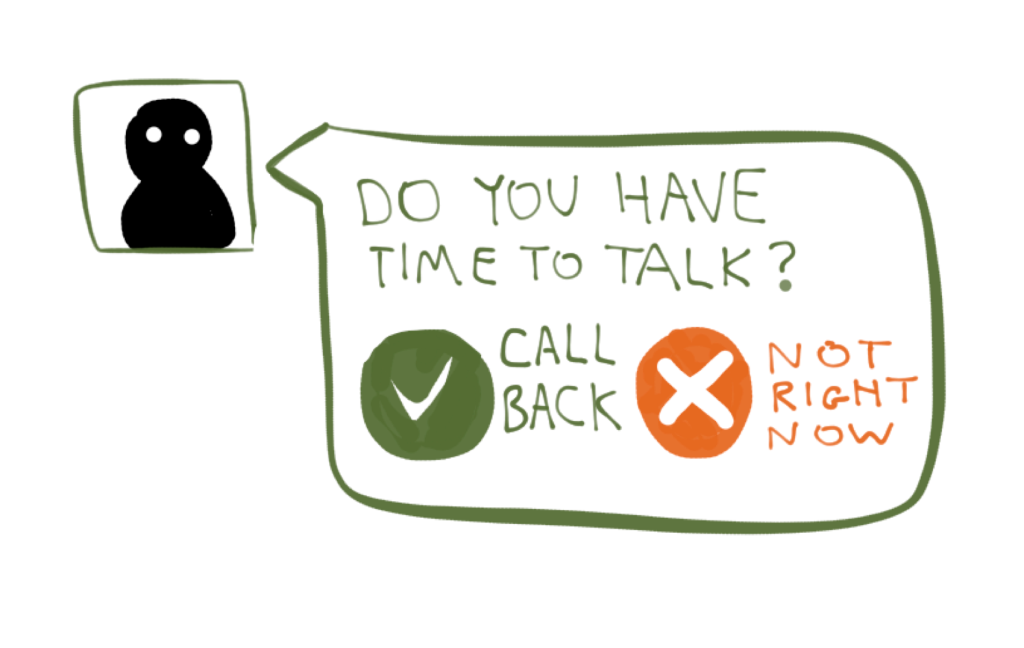text messaging
-

The issue: Sometimes, one must make a difficult decision in life, or convey bad news to someone. This can be stressful! Proposal: But what if these hard decisions could be outsourced? With this new system, if you find yourself in an unpleasant situation while messaging someone, you can press a button on the program to…
-

Background: Phone woes: when you use text or call someone, there’s no way to differentiate between the following scenarios: Low priority (not time-sensitive): “Let’s chat, if you have time.” Medium priority (time-sensitive): “I just showed up at the crowded convention center, but I can’t find you.” High priority (important and time-sensitive): “Your car is about to…


You must be logged in to post a comment.